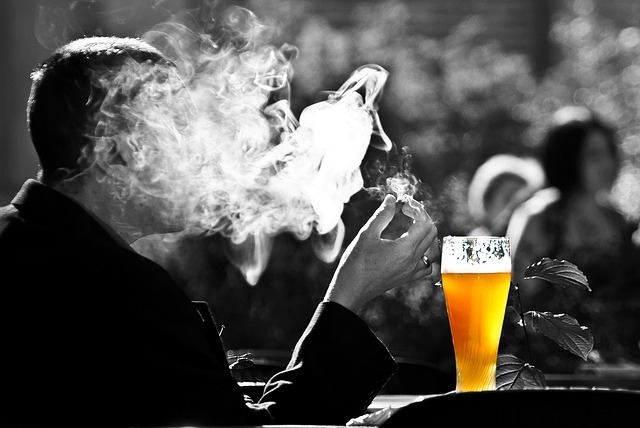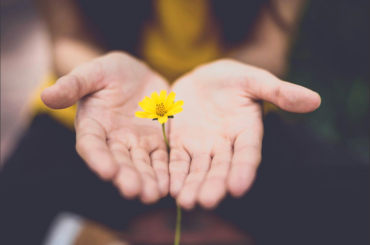We live in times where the pace is frenetic with constant stimulation through technology and endless demands which creates a negative impact on our brain and coping mechanisms. Our options as to how we spend our time are numerous. Our brains are overstimulated, and we have become a society that is addicted to the constant distractions and chaos.
We have also become accustomed to having what we want and when a situation doesn’t go as planned, we have very little tolerance to accept reality. We may feel we either need to manipulate and control the situation to get the outcome we so desperately want, or alter our reality so we do not have to deal with it. There is a desperation present. We feel we need more control of our lives as we witness the volatility of our world today, with little idea as to how we can have influence or impact.
Sadly, the moment of control is an illusion and our fear of what we cannot face will rear its ugly head, once again.
For people in Recovery we learn quickly that we do not have the luxury of anesthetizing our emotions anymore and we are left with the stark reality of having to tolerate what we are feeling.
For a newbie, this is a hard task to learn.
Accepting my feelings is contrary to what I have always done. I learned as a young child when a situation feels intolerable to disconnect and check out, whether it be emotionally or physically. Not being present in the moment meant survival was possible.
Being able to cope effectively with all your emotions without resorting to using drugs and alcohol is the first step to achieving emotional stability. Allowing yourself to be able to fully experience all the emotions that arise without stuffing, disconnecting or acting out in unhealthy ways.
What a concept for those of us who have spent our whole life trying to run from ourselves.
The way through the discomfort is to fully lean into the discomfort.
Over time I have been able to witness what is playing out for me emotionally in real-time. That my subconscious mind has a sense of when I am triggered by my history that has very little to do with the moment being presented.
This process allows me to pause and choose again as to how I wish to react to what is triggering me!
I know that in no time at all another new thought or situation will come my way that may emotionally upset me but it is my reaction that is paramount regarding the outcome. Nowadays, I can witness my thoughts without attachment or become emotionally triggered and. Here lies the sweet spot of emotional sobriety, where I am able to accept and tolerate and not have to react or do anything about it.
Hmm, is it really that easy?
Building resiliency in all areas of your life is the key to achieving emotional sobriety and long-lasting happiness but it doesn’t happen without hard work and a course of action.
The cornerstone of my Recovery is dedicating time to set my day up for happiness and success by having a Daily Practice that consists of prayer, meditation, gratitude and breath work allowing me to become more resilient and glide through my day more easily.
Abstinence from active ‘using’ is the necessary first step to enter into recovery but it is not enough to keep you on the path unless you start to look at what the triggers are that make you want to use in the first place.
This took me a long time to get a handle on as a victim of unresolved trauma, depression and very little comprehension of how I ended up in the same place repeatedly.
I remember hearing the phrase “frequency of addiction” a term coined by my friend and mentor Tommy Rosen. It was as if the lights went on for the first time ever. It explained so clearly that one could recover from acute drug addiction and alcoholism but still be vulnerable to addictive behaviours and possible relapse. It was so clear to me that one can remain abstinent from drugs and alcohol and still be very unwell.
I wasn’t happy or stable and thought there was something pathologically wrong with me as compared to what had happened to me.
Over time I have been able to rework the patterning of my formative years, by playing back the trigger in slow motion and choose how I wish to react to the situation. I can acknowledge that there is an energetic and unresolved frequency (typically sub-consciousness) with very little understanding as to why this is having such a profound effect on me. It is a powerful force that will knock you off your game and sobriety if you are not aware how this will impact you.
Luckily today, my spiritual faith, being a witness to my patterns, acceptance of what is and my Daily Practice has allowed me to be able to handle anything that will come my way….because the sh*t will keep coming, and resiliency is the key!









3 Comments
Thank you so much for your eloquent and spot-on post. This really resonates with me. I try to explain to my family that setting aside time to meditate, pray, yoga, etc. is NEEDED to maintain my sanity and therefore recovery. I physically miss it when I don’t do it.
Thank you for your feedback!
It is my hope that you too can take time for your own self-care and Daily Practice so that you may remain steadfast in your Recovery.
Wishing you easier days ahead!
Jeanne,
Thank you so much for your writing. I am finding over the 14 years of recovery, my commitment includes meditation, quiet time, prayer, readings, writing, and walking a mile each day, if not more. Each is necessary to set my day in good stead, and I am now needing to incorporate yoga, as the next discipline to allow me to become more flexible, and to inhabit my body at a deeper level. I am a Reiki Master, and need to embrace the teaching aspect in this arena. This is my challenge, to expand, to grow, to share, teach and offer to others who will come. Thank you so much, for expanding your own recovery life and practice, to others as well.
Self care has been the hardest, most precious lesson I continue to learn. I am so grateful for how my relationship with self and my higher truth deepens.